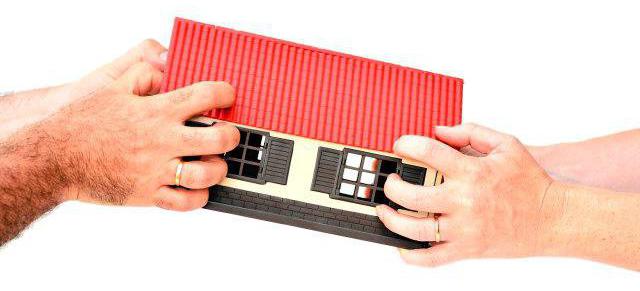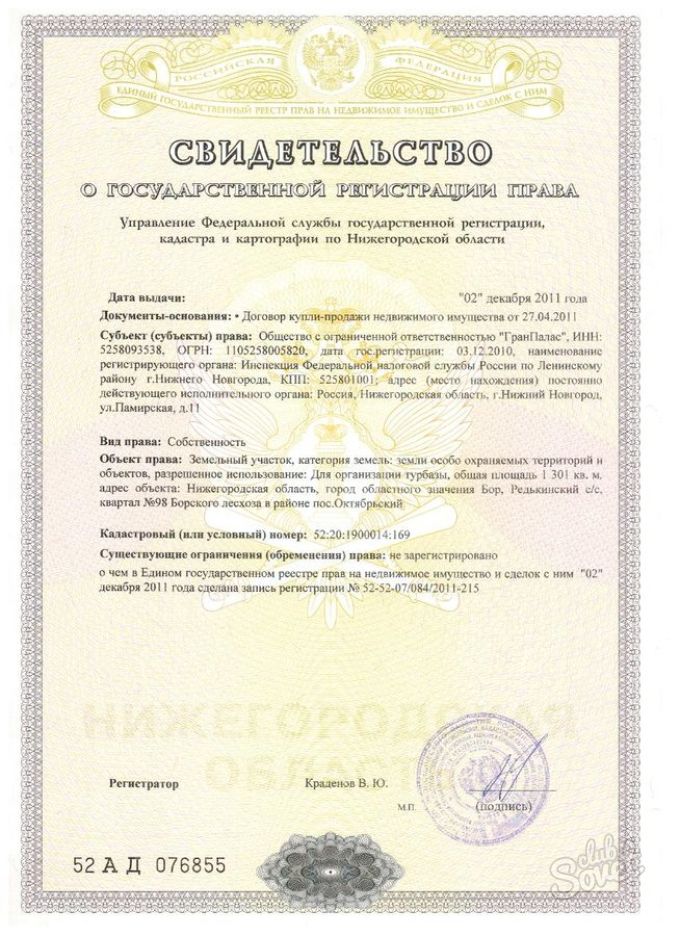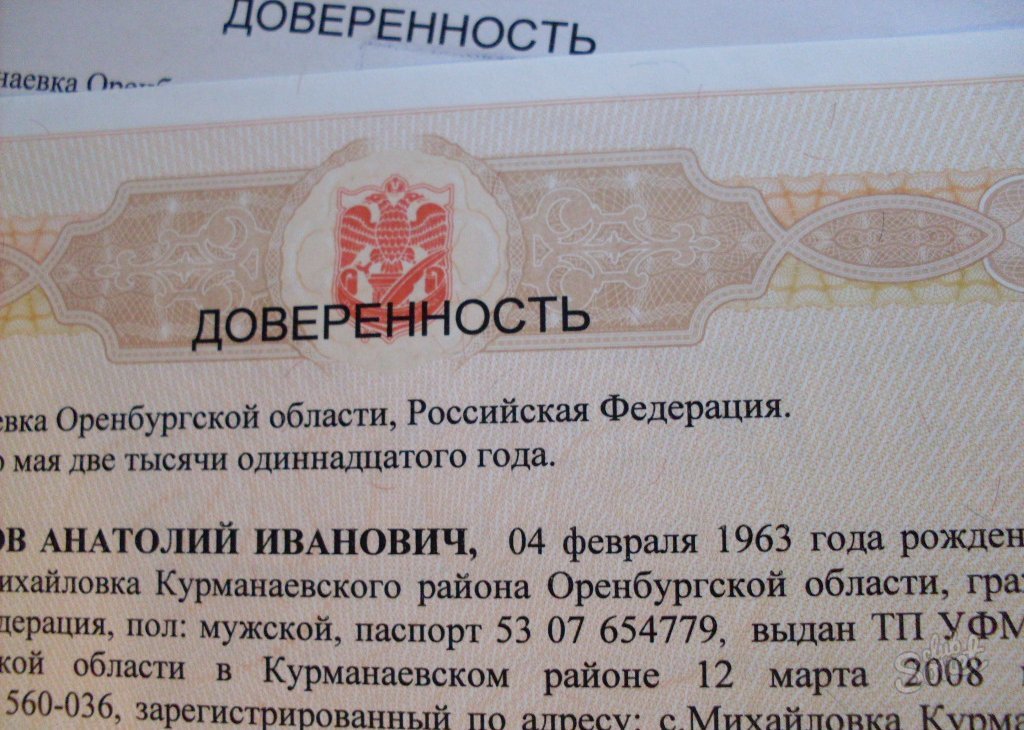How to sell a shared apartment. Shared property of spouses. Receiving rent for an apartment
A change of ownership of real estate always raises many questions among citizens. And what can we say about the situation when a share in an apartment is sold! There is a lot here that people don't understand. In our article we want to figure out how to correctly draw up documents, what shared ownership is in general, and what to do with paying taxes.
What is shared ownership?
Let's first figure out why the situation of shared ownership arises in the first place. In fact, there can be many reasons:
- Housing is privatized for absolutely all registered family members at the time of registration of documents.
- The apartment, which is in common ownership, is divided after the divorce of the spouses.
- The real estate was inherited by several descendants.
It should be noted that an ordinary apartment, which is in shared ownership, is physically impossible to divide. To accomplish this, as they say, “in kind,” it is necessary that this housing have separate entrances and connections to all communications. It is impossible to implement this in practice. In this way, sometimes it is possible to divide only private houses. In all other cases, ideal shares are obtained.
What is an ideal share?
You must first of all understand that the ideal share is not your part of the housing, but only a share in the right to it. In fact, it is the ownership itself that is subject to division, not the apartment. As they say, it is not possible to touch this part in reality. One of several owners cannot be considered the owner of the property, because he only owns a share, and this, in fact, is only a type of right, but not the apartment itself. 
It turns out that each of the owners has the opportunity to use housing, but at the same time should not violate the rights of others. Of course, in practice this is not at all easy to implement. It comes to the point that the rules for using the living room, bathroom, toilet or kitchen are established, and rooms are divided between residents.
However, if one of the co-owners is allocated by the court a room for use with an area of fifteen meters, and the other, for example, twelve, then they will pay utility bills in accordance with what shares they own. If each of them has half, then they will receive bills for half of the apartment, and not for the occupied space.
Selling a share in an apartment causes the greatest difficulties. A lot of questions and problems arise here. This means that it is necessary to understand this in more detail.
Sale of a share in an apartment by the owner
This situation is certainly not very good. Let's explain why. The fact is that the owner (or rather, one of them) can sell not the housing itself, but the right to own it. Agree that this will certainly affect both the price and the duration of the process. There probably aren’t many people who would want to buy real estate in addition to having strangers next door. Although a person, in fact, has the right to sell a share in an apartment, it is not so easy to realize it. 
But this is not the only difficulty in such situations. The fact is that share owners have a priority right to purchase this housing. How it works? First of all, you need to offer to purchase the property to another co-owner. If he agrees, then the share of the apartment is sold to a relative (as a rule, distant and close relatives are co-owners), and if he refuses and does not purchase the part being sold within a month, then it can be sold to complete strangers. There is one thing. And quite significant. The purchase and sale agreement for a share of an apartment must have the same conditions both for the owner of the part and for a stranger (the price must be the same). This will help eliminate the possibility of fraud.
If this condition is violated, the co-owners may file a lawsuit to transfer the right of sale to themselves. Such a statement can be submitted within three months, starting from the moment it became known about violations of the preemptive right. Selling a share in an apartment to another owner is accompanied by many problems and nuances that are best known in advance. To avoid unnecessary mistakes in the future.
Registration of pre-emptive right
Using the advice of lawyers who are well acquainted with such situations, you need to correctly draw up all documents so that there are no unpleasant incidents. For example, in order to comply with the pre-emptive right, it is better to make a proposal to purchase a share in writing by mail with a notification or registered letter. You can also hand it in person, but ask to sign the copies indicating the time and date of receipt. There must be confirmation of receipt of the papers. This way you will be safe from possible dishonest actions of other owners. After all, they may ignore your proposal, and later claim that you did not inform them.
By the way, the pre-emptive right is implemented in a similar way during exchange. 
How can you bypass the pre-emptive right?
If you happen to have a share of ownership in the apartment, selling, as you understand, will not be an easy task, since it is not always possible to come to an amicable agreement with the co-owners. What to do in this case? After all, there is no other choice but to get rid of such real estate. This is where legal advice will come to the rescue. You may be asked to cheat and bypass the pre-emptive right. This option is not entirely good and involves certain risks. The fact is that the buyer may not be entirely honest, which means that by circumventing the pre-emptive right with an imaginary contract, you may not receive money under the agreement.
Is a gift agreement possible?
Of course, the sale of a share in an apartment is possible through a donation. And in this case, the preemptive right does not work. After all, you cannot prohibit giving something. But this also has its own nuances and risks.
The fact of a gift for the buyer may be declared invalid as it conceals the purchase and sale agreement. The owner may demand that the rights under the transaction be transferred to him. This means that the buyer will lose the purchase.
The seller may suffer in other ways. If the buyer does not pay honestly, then collect money from him in a legal way will not work. 
Inflated price in the contract
In order to force the co-owners not to purchase the part of the property being sold, you can offer them a purchase and sale agreement for a share of the apartment at a very inflated price. Having received a refusal or not having received it, the seller can issue a receipt for the same amount as specified in the contract, but agree with the buyer that he will pay a lower (real) amount.
What pitfalls could there be in such a development of the situation? As a result, the tax from the transaction will be overstated, since the amount indicated in the receipt will be reflected in the declaration.
In general, there are no ideal options. In each case, you just need to correlate the amount of tax and the price of the share, and also find out the conditions for the occurrence of obligations to pay personal income tax (there are cases when the sale of real estate is not subject to tax).
Drawing up a loan agreement
You can draw up a loan agreement, which will indicate an amount equal to the price of the purchased share of housing. At the same time, an agreement is made under which the loan is secured by the right to a share of the property. This type of collateral agreement is called a mortgage. This is not a loan at all, as many people think. The mortgage must undergo state registration. The state duty will be one thousand rubles.
Next, the borrower deliberately misses the deadline for repaying the money. In turn, the buyer of part of the apartment, who acts in in this case the creditor applies for foreclosure on the share of the real estate. In order not to get involved in litigation, they sign a compensation agreement, in which both parties agree that instead of returning the loan amount, the right to a share of the property is transferred.
But even in this case, everything is not so simple. There is still a risk of cancellation of the contract at the initiative of the remaining homeowners if they go to court. If the claim is satisfied, the buyer will need to return the share, and the seller will still owe money under a fictitious loan agreement, since the compensation will be invalid. 
What transactions with shares are illegal?
The sale of a share in an apartment is impossible in case of assignment of rights (cession). Such transactions are prohibited.
The assignment can be used when alienating the shares of one founder of an LLC, but it is impossible to sell a share in an apartment in this way.
Does preemption always work?
There is one case when a share in an apartment can be sold without maintaining a pre-emptive right. This is a sale at public auction. Only creditors do this with a share of real estate, if there are no other ways and Money the debtor is not enough to cover the debts.
But not every share can be collected as a debt (after all, you cannot take away your only home). There are only two options when a share can be taken away:
- The share in the right became collateral for the mortgage (in this case, even the only housing is foreclosed).
- If the debtor does not live in the apartment in which he has a share and is registered at a different address, or he also owns other housing.
Sale of the entire apartment with shared ownership
If the apartment is small, plus there are several co-owners who have no desire to live together in the same area, then the best solution in such a situation would be to sell the entire apartment. Any lawyer will offer you this solution to the problem.
If all parties agree, then no difficulties will arise. Although you may still need legal support to properly complete the transaction. Several options are possible:
- Conclude a purchase and sale agreement, but all share owners will act as the seller.
- Draw up as many agreements as there are owners. As a result, the buyer ends up with so many agreements on the purchase and sale of shares that he becomes the sole owner of the apartment.
The first option is preferable when the co-owners live nearby. It is also more interesting in the sense of paying the state fee for registering property rights.
Although, if you have legal support, you will be advised of a more profitable option in each case.
The second option may be convenient in cases where the co-owners categorically do not want and cannot communicate with each other, or live far away, or do not want to provide a power of attorney to sign an agreement with each other. There can be many nuances. Correct solution A lawyer will help you decide.
However, in the second case, the buyer will have to pay a state fee of a thousand rubles for each share. 
How to resolve the situation if one of the parties is against the sale?
This situation occurs most often. It is due to the fact that several owners intend to sell an apartment that is completely unnecessary to them. And then split the money. And some participants, for example, for some reason are against such a decision. Do not forget that here a lot depends on the size of the shares.
If the opponent of the sale has a small part, then you can forcibly buy it from him. This is done in judicial procedure. A corresponding claim is filed. Having justified your demands with a small share of the co-owner, you can petition to force the transfer of his share to other co-owners, of course, for monetary compensation.
Of course, if a person lives on this living space, then no one has the right to force him to sell his part, because the reason is only the small size of his part.
What is the tax rate?
Funds received from the sale of property or shares are defined as income. This means that it is subject to personal income tax. Its size is thirteen percent of the contract amount.
But there are exceptions when you do not need to pay tax. For example, in the case when the share has been owned by a person for more than three years. The reference date is the moment of state registration by a citizen of ownership rights to his share.
In other cases, when personal income tax still has to be paid, the state provides tax deduction. This is the amount by which the price of the apartment or its share should be reduced when calculating the tax amount.
But the tax deduction regarding the sale of the right to share has its own nuances. 
Tax deduction
The maximum deduction amount has been set at one million rubles for one object of sale. An apartment can also become such an object if it is sold as a whole. Or it could be a share, if the agreement is drawn up for each part separately.
It turns out that when selling the entire apartment, the maximum deduction amount is calculated in proportion to the owners’ shares. But if each part is sold separately, then each owner has the right to receive a deduction in the amount of one million rubles.
If you sold a share in an apartment that you owned for less than three years, then you will need to fill out and submit a declaration indicating the amount of income received from the transaction. There you will also find a tax deduction column. You will pay tax on a lesser amount than stated in the sales contract.
Accordingly, if the income received by a citizen amounts to a million rubles, then tax obligations will not arise, because the tax deduction will pay off this amount. The person will only submit a declaration, where he will indicate everything in detail.
Documents for selling a share in an apartment:
- Passport of the seller or all co-owners of the property.
- If one of the owners is a minor, then you will need his birth certificate and permission from the guardianship council (this is given after writing an application to the guardianship authorities indicating the details of the apartment you want to purchase to replace the old one). You also need the consent of the child's parents. But if they are divorced, then they will need the services of a notary to certify documents.
- Certificate of ownership of housing, privatization documents, purchase and sale agreement (if the apartment was purchased).
- Certificate from the Unified State Register.
- Technical passport from BTI. Cadastral passport for real estate.
- Certificate of alienation from the BTI, which is valid only for a month.
- Document on family composition from the management organization.
- Written consent of all participants to the transaction. Here again you will need the services of a notary to certify the documents.
It should be remembered that the transaction, and therefore the contract itself, will be invalid until they are registered by the state. Only certification of documents gives them legal force. And only in this case is the transaction legal and correctly executed.
Instead of an afterword
As you can see, selling the right to a share of an apartment involves knowledge huge amount nuances. We hope that after reading the article you will not have any questions regarding this topic.
Approximately 95% of real estate in Russian Federation is in.
Virtually every citizen who has an apartment and decides to sell it for any reason can become a “hostage” of such property.
To put an apartment up for sale, you must obtain the consent of all its owners. Unfortunately, situations where a general agreement of all co-owners is reached and the sale is carried out at market value with the subsequent division of the received amount according to shares is quite a rare occurrence.
More often, the case ends in mutual reproaches, a quarrel and an appeal to the courts. And this entails additional costs for assessing housing and ordering technical expertise, legal costs, and, of course, paying for the services of lawyers and attorneys.
To avoid unnecessary financial expenses and scandals, you need to be patient and make every effort to negotiate with your closest relatives (real estate owners who have their own shares).
This is exactly the advice given by most lawyers who help solve the problem of selling this type of real estate.
It is obvious that it is not always possible to resolve a problem amicably - each of  co-owners have their own claims and ambitions, and sometimes long-term hostility and mistrust prevent an agreement. In such a situation, the best solution would be to sell the disputed share to a stranger or, as such a buyer is more often called, a third party. How then?
co-owners have their own claims and ambitions, and sometimes long-term hostility and mistrust prevent an agreement. In such a situation, the best solution would be to sell the disputed share to a stranger or, as such a buyer is more often called, a third party. How then?
Sometimes just one notification to co-owners of square meters who do not agree with the sale that the share will go to a stranger, with whom they will have to share the same roof, makes them more accommodating. Subsequently, the sale is quite successful, and the amount received is divided, focusing on the size of the share of each of them.
 In particularly difficult situations, one has to be content with only selling the disputed shares.
In particularly difficult situations, one has to be content with only selling the disputed shares.
By law, part of the apartment (share) put up for sale can be purchased by a third party within a month. In this case, of course, the owner loses part of the profit, since he is forced to reduce the price. Typically, part of the apartment is sold at a price that below the market by 35-45%. But he saves himself from unpleasant disputes and months-long litigation with relatives.
Which way to solve a sales problem will be optimal depends on the specific situation. In any case, it would be a good idea to consult with an experienced lawyer who will suggest the best choice to speed up the sale. You also need to remember that he will definitely advise you to talk with other shareholders and obtain their voluntary consent, since this is the most beneficial resolution of the dispute for the seller.
 Therefore, it is necessary to independently make an attempt to come to an agreement even before contacting a lawyer, and work out everything possible options negotiations with co-owners of the apartment.
Therefore, it is necessary to independently make an attempt to come to an agreement even before contacting a lawyer, and work out everything possible options negotiations with co-owners of the apartment.
How to evaluate real estate?
As soon as an agreement is reached regarding the sale, you must immediately contact an organization that provides real estate valuation services. 
Appraisers do not set the price “by eye”, as the average home owner does when they want to get the maximum benefit from the sale.
These specialists carefully analyze the current situation this moment market situation and make all the necessary calculations. Perhaps, in the end, a certain amount will not be the highest, but they will buy an apartment at an adequate price in the near future.
It should be clarified that the cost of housing established in the BTI and reflected in a special certificate does not always coincide with the cost assigned by appraisers.
And there is nothing surprising or contradictory about this. It’s just that any appraiser is guided by slightly different characteristics than BTI employees. The latter are not interested in the market price, but in the wear and tear of the building and other technical issues (which are of no interest to the seller and have nothing to do with getting the maximum benefit from the sale of the apartment).
An experienced appraiser will first of all pay attention to the following characteristics of the property: 
- To its square. The larger it is, the more profitable it is for the seller - the price will be higher.
- On features. According to the unspoken rating, the so-called “Stalinists” are valued most highly. Apartments located in panel houses cost a little less. And “Khrushchev” cars are in the least demand among buyers.
- For the placement of living space in the house. A corner location or placement at the end of the house will significantly reduce the cost. But the large hall, on the contrary, will increase it.
- The view from the window. The buyer wants to see from the windows not a construction site or a backyard, but, for example, a park or a city square.
- On the features of the layout. Special attention attention is paid to the isolation of individual rooms, the presence of a balcony or loggia, its glazing, and the features of hot water supply (if there is a gas water heater, this automatically increases the cost).
- On the state of existing communications. These include all engineering and technical lines that ensure comfortable living - water supply, sewerage, electrical wiring, heating system, operation of elevators in the house.
- The location of the house itself. The closer the apartment is to major transport interchanges, the more valuable it is in the eyes of buyers.
- For the safety of residents. It’s good if there is a guarded entrance and area near the house, an intercom and a concierge.
- On the prestige of the area. This is perhaps the main factor when choosing housing. It also includes the type of building (new or old), and the presence of appropriate repairs in it.
- According to the type used building material. The greatest demand is for apartments in houses built from bricks - a durable, warm and reliable building material.
Search for a buyer
The main task of the seller is to attract the maximum number of interested buyers.
The more there are, the faster and at a better price the apartment will be sold.
To achieve these goals, you must complete one or more of the following actions: 
- submit advertisements in popular local newspapers;
- place advertisements on well-known Internet resources (bulletin boards) or real estate agency websites;
- Post up advertisements yourself in the busiest parts of the city (for example, near transport stops or supermarkets);
- tell all your friends and relatives about the upcoming sale (in this case, free “word of mouth” works);
- contact a real estate office - these specialists are directly interested in the fastest sale at the best price.
Preparation of documentation
The sale is carried out through signing, for registration of which interested parties must contact a notary office.
The seller must have with him a package formed by: 
- from an identity document;
- from the house register, certificate confirming ownership, and technical passport;
- from the marriage certificate of the property owners (or from the divorce document, if it occurred);
- from the birth certificates of all children (residents additionally require permission from the guardianship authorities!);
- from the written consent of each of the co-owners;
- from a certificate issued by the BTI (it contains information about the book value and general condition of the apartment);
- from a certificate confirming the absence of arrears in payments (issued by the Housing Office);
- from a housing assessment document received from appraisers;
- from the departure sheet, confirming that the owners have checked out of the apartment (issued at the passport office, there is also a mark in the house register).
Drawing up a purchase and sale agreement
 Before execution of the main contract, a preliminary document is always drawn up.
Before execution of the main contract, a preliminary document is always drawn up.
This document specifies the cost of housing, and also indicates the date of contacting the notary's office to sign the main purchase and sale agreement. In addition, information on the timing of eviction is entered. former owner(usually he leaves housing within a month).
The amount of the deposit is fixed. This money is a kind of compensation to the seller in case the buyer refuses the transaction. If the seller refuses, the buyer is paid a double deposit.
The main agreement is always signed in the presence of a notary. The parties get acquainted with the document and pay all taxes. After which the money is transferred to the seller and the contract is signed.
Registration
To obtain the right to own the purchased apartment, the new owner must go through. To do this, you must contact your local registration authority.
You must have with you a package of documentation formed by: 
And how it can be used to purchase housing.
You will find detailed information on the procedure for allocating a share from common shared property in.
How to correctly use an escrow account when paying for the purchase of an apartment and is it worth using it? Find out about it.
Receiving rent for an apartment
The transfer of money is always recorded in the notary's office! Signing the contract is possible only after full payment between the buyer and the seller.
To confirm the transfer of funds from the buyer's account to the seller's bank account, you must present a bank receipt to the notary. On average, the bank commission for this operation is 1,800-2,000 rubles.
Since the privatization program began in 1991, about 85% of the country's total housing stock has been privatized. Many Russians have become full owners of the houses and apartments in which they lived before privatization. This gave rise to numerous cases when the same apartment was acquired by several owners at once, and not necessarily having family ties. And if this did not always become a problem when living together, then when trying to sell a share, the co-owners do not always manage to avoid disagreements. This is because, by law, each participant in common shared ownership, when selling his share in an apartment, is obliged to comply with certain regulations, which, among other things, imply obtaining consent from other co-owners, offering them to buy out their part of the property, etc.
A serious obstacle to agreeing on issues relating to the rights to sell shares in privatized apartment, becomes the procedure for dividing property in the form of real estate. If in a two-room housing with two owners, dividing shares in kind is not particularly difficult (each co-owner is allocated one room plus the opportunity to use common premises: toilet, bathroom and kitchen), then in the case of one-room apartments this one room has to be divided in half. How to sell the share in this case?
There are other nuances that can complicate the sale of shared ownership: the share belongs to a minor, one of the co-owners does not consent to the sale of the share, the apartment acts as collateral, etc. What to do in each specific case? How to sell a share in an apartment that has a mortgage? What to do if the owner of the share is a minor?
Selling a share in an apartment: sale
The sale of shared ownership is always preceded by its allocation. In other words, it is necessary to clearly understand what exactly is being sold, what living space will be indicated in the purchase and sale agreement, and what share in the apartment the owner will register for. new owner. Initially, an attempt is always made to allocate a share in kind: here the apartment owners need to reach mutual agreement regarding the shares and rights of each co-owner, for example, assign each of them a separate living room. In this case, the sale of a share will mean the sale of one room with the opportunity to use common premises (important: legally, ownership is not registered in the room, but in the share).
In a situation where the allocation of shares in kind is impossible (one living room) or the owners of the apartment have not reached mutual agreement on the division of property, the court will resolve the issue. By the way, in the absence of violations on the part of the applicant (seller of the share), the judge will simply divide the existing apartment into equal parts: if the total area of a one-room apartment is 36 square meters, then each of the two owners will be given the right to dispose of 18 square meters.

What is meant by violations? First of all, in order to sell a share in an apartment, you should send notices to all owners of your intentions and be sure to provide them with a pre-emptive right to purchase (in accordance with Article 250 of the Civil Code of the Russian Federation, Part 1). Let us note that the value of shared ownership in this case cannot be overestimated or underestimated, i.e. all owners must have the opportunity to buy a share at the same market price - the one that will be offered to other potential buyers.
The renunciation of the co-owners of a privatized apartment from their rights to purchase a share allows it to be offered to any other interested party. If there are several co-owners wishing to purchase a share in the apartment, the seller has the right to independently choose one of them (in accordance with Article 250 of the Civil Code of the Russian Federation, clause 2).
Share of a minor child: how to sell?
It will be possible to buy or sell a share owned by a minor only after obtaining permission to complete the transaction from specialists from the guardianship and trusteeship authorities. This is done in order to ensure that the interests and rights of the child are taken into account and protected. In practice, it will be possible to obtain such permission only if written guarantees are provided that these interests will not be infringed: the minor will receive an equal share in another home (in ownership), the proceeds from the sale of the share will be transferred to the child’s personal bank account, etc. At the same time, the guardianship and trusteeship authorities must make sure that the minor participant in the common shared property will not be left without housing as a result of the transaction.
Having received the consent of specialists to sell the share of a minor, all that remains is to follow the basic regulations:
- Allocate a share in a privatized apartment.
- Send written notifications about the transaction to all property owners (interested parties).
- Provide co-owners with a pre-emptive right to purchase a share and one sample purchase and sale agreement.
- Go through the courts if any problems arise with the provision of written notices addressed to interested parties.
- Conclude a purchase and sale agreement.
Sale of a share in an apartment without the consent of the second owner
Obviously, not every owner of a share in a privatized apartment will be happy with the decision of one of the home owners to sell his part of the common shared property, for example, to a third-party buyer. In this case, the co-owner himself may not have the desire or opportunity to buy a share. Often this becomes the cause of numerous problems: some owners deliberately avoid contact with such a seller, create all sorts of obstacles for him, declare their intentions to “sue”, challenge the contract, etc. How can a rightful owner of real estate sell a share in an apartment in such a situation?

According to the Civil Code of the Russian Federation, the sale of a share is possible immediately after its allocation, i.e., if there are documents in hand indicating the area for which the seller has registered ownership. At the same time, the consent of the remaining owners, if the regulations have been observed (preemptive right of purchase, etc.), is no longer required. Accordingly, the sale of a share in an apartment without the consent of the second owner will initially require a procedure for its allocation. Here the law recommends the following:
- Try to resolve the issue with the co-owners peacefully, reminding them of their rights to purchase property (such an agreement will eliminate a lot of bureaucratic problems and nuances).
- Send written notifications to all interested parties (owners) of your desire to sell the share (if the co-owners live elsewhere - by registered mail with notice).
- Offer in writing the right of first refusal to purchase the property to each owner and one copy of the purchase and sale agreement.
- If there is no proper result, apply to the court with an application, to which attach documents (written notices) confirming the implementation of all the above actions.
If this regulation is fully complied with, i.e. neither the Civil Code of the Russian Federation, nor individual laws or others regulations are not violated, the court is guaranteed to rule in favor of the applicant and allocate a share, which can subsequently be sold without any problems by drawing up a purchase and sale agreement.
Sale of half share
The sale of a share may be accompanied by other nuances, for example, the desire to get rid of only a certain part of your share in the apartment. Let us note that the Civil Code of the Russian Federation does not exclude such a seemingly unpopular transaction, but it is easy to assume that two owners can own, for example, a 4-room apartment. In this case, how to sell half the share - one of the rooms?
According to the law, it is necessary to go through the same procedure: allocating a share, notifying all owners and inviting them to purchase this part of the property. Here, sellers also often have to deal with the refusal of a co-owner, and this problem is often resolved in one of the following ways:
- According to the documents, part of the share that needs to be sold is “gifted” to the buyer, who, of course, pays for it unofficially. Let us note that such a transaction is called a sham transaction, therefore such ownership rights will be easily challenged in court when other owners apply.
- From the part of the share being sold, another share (micro-share) is allocated, which is donated to the person acting as the buyer. Subsequently, he, as a full co-owner of the privatized apartment, is given a pre-emptive right to purchase the remaining part of the share being sold. This transaction is also considered a sham.
- Another popular method, which can be called the most “legally clean,” involves the owner leaving part of the share as collateral, while the loan amount is the full cost of the sold part of the share in the apartment (one of the popular forms of purchase).
How to sell a share in an apartment purchased with a mortgage?
Situations where one of the owners wants to sell a share in an apartment on which a mortgage is issued is most often encountered by spouses who are filing divorce papers. What does the law recommend to do in such cases? First of all, you should try to come to an amicable agreement, try to sell the share to the second owner, i.e., conclude a deal with him. If the latter gives his consent to the purchase, the bank will reissue the mortgage and all documents exclusively for him.

If the co-owner of the apartment does not agree with the sale of the share or does not have the opportunity to buy this property, the seller has only a few options:
- Pay off the mortgage in full, allocate your share (including through the court) and get the opportunity to sell it.
- Persuade your bank to transfer its part of the mortgage to the person acting as the buyer. In practice, such options are usually not even considered by bankers.
- Together with the other owner, agree on the sale of the apartment, sell it, and then divide the money according to the size of your shares.
The sale of a share of real estate purchased under a mortgage agreement, provided that the second owner does not want or is unable to become a second party to the transaction, is usually carried out in accordance with the third option. Selling the entire apartment is the optimal solution, since this option is legally simple and the most time-efficient in completing the transaction (does not require the collection of a large package of documents or a written application to the court).
Taxation when selling a share
When carrying out a transaction in the form of the sale of a share in a privatized apartment (property), the seller is obliged to pay tax on income individual- Personal income tax. Currently, this is 13% of the amount of such income (the transaction amount specified in the agreement). At the same time, the Tax Code of the Russian Federation provides for a significant tax deduction for real estate transactions - 1 million rubles. Accordingly, if the cost of the sold share was 1.1 million rubles, then the amount of tax payable will be:
(1.1 - 1.0) * 0.13 = 13,000 rubles
Tax legislation contains another important norm: according to clause 17.1 of Art. 217 of the Tax Code of the Russian Federation, a seller who has owned it for more than three years is completely exempt from paying personal income tax when selling real estate.
To sell an apartment, you can follow the following algorithm.
Step 1. Come to an agreement on the sale of the apartment with all participants in shared ownership.
The disposal of property in shared ownership is carried out by agreement of all its participants (clause 1 of Article 246 of the Civil Code of the Russian Federation). The agreement of the participants can be concluded orally. In this case, the purchase and sale agreement must be signed by the seller personally by all participants in shared ownership.
As an option, it is possible for one of the co-owners to issue a notarized power of attorney to collect documents and (or) sign a purchase and sale agreement on behalf of all owners.
Step 2. Determine the market value of the apartment.
Independently: by conducting comparative analysis prices for similar apartments in your area.
With the help of an independent appraiser: enter into an agreement with the appraiser to prepare an expert opinion. The cost of apartment assessment services depends on its location, class of apartment (standard, business class), etc. For example, the estimate for a typical apartment in Moscow is from 3,000 rubles. An appraiser's report will also be needed if your apartment is purchased by a buyer with a mortgage and a mortgage is issued.
Step 3. Find a buyer for the apartment.
On your own: place advertisements in newspapers and on specialized Internet sites.
By contacting a real estate agency:
Discuss with the realtor the approximate timing of the sale of the apartment, its cost, the exact scheme of the future transaction, the procedure for receiving funds, as well as the amount of the realtor’s remuneration;
Enter into an agreement with the agency to find a future buyer.
It should be kept in mind that contracts with real estate agents are usually exclusive, meaning you will not have the right to enter into a similar contract with other agencies or even look for a buyer yourself during the contract period.
Step 4. Prepare documents for selling the apartment.
This can be done simultaneously with step 3 yourself or with the help of a real estate agency by issuing a notarized power of attorney.
For the transaction, sellers will need the following documents (Articles 16 - 18 of the Law of July 21, 1997 N 122-FZ; clause 29 of the Methodological Recommendations, approved by Order of the Ministry of Justice of Russia of July 1, 2002 N 184):
Documents of title: a purchase and sale agreement under which you acquired shares in the ownership earlier, contracts of exchange, donation, an agreement for the transfer of ownership of an apartment if you privatized the apartment, or a certificate of inheritance;
Documents of title: certificate of ownership of shares in the apartment, an extract from the Unified State Register confirming the absence of arrests and encumbrances (issued at the territorial office of the Federal Registration Service of Cadastre and Cartography of Moscow (Rosreestr), usually on the day of application);
BTI documents (prepared in approximately two to three weeks): cadastral passport if necessary, explication, floor plan;
Extract from the house register (provided by the EIRC free of charge on the day of application);
Notarized consent of the co-owner's spouse to sell the share. It is necessary if the share was acquired during the marriage and is common joint property. When receiving a share during marriage free of charge (inheritance, gift), the consent of the spouse is not required (Articles 33, 34 of the RF IC);
Apartment purchase and sale agreement (signed in simple written form and does not require mandatory notarization). A special feature of the apartment purchase and sale agreement is the fact that it must indicate the persons who have the right to use this apartment (that is, registered in it) (Articles 550, 554, 558 of the Civil Code of the Russian Federation).
Step 5. Sign the purchase and sale agreement.
The parties to the agreement sign it personally. All participants in shared ownership must be present on the seller's side. Also, the purchase and sale agreement can be signed by one of the participants in shared ownership using a notarized power of attorney on his own behalf and on behalf of all others.
Step 6. Obtain confirmation that ownership is registered with the buyer.
By general rule state registration ownership rights are obtained within 18 calendar days from the date of receipt of documents (clause 3 of article 13 of Law N 122-FZ).
Confirmation of the transfer of ownership will be an extract from the Unified State Register stating that the ownership is registered with the buyer, or a copy of the buyer’s certificate of ownership, certified by the registration authority or notary.
Step 7. Receive payment for the apartment.
As a rule, payment is made after registering the transfer of ownership. A specific period is established in the contract.
The preferred payment methods are settlements using a letter of credit or using a safe deposit box. By agreement of all co-owners, one of them may participate in the settlements. Confirmation of the transfer of ownership will be needed to make payments.
Income from the sale of an apartment will be distributed in proportion to the shares in the common property, unless otherwise provided by agreement of the former co-owners - sellers (Article 248 of the Civil Code of the Russian Federation).
It happens that an apartment has several owners and it is divided into shares that are not always equivalent. But one day the moment comes when you need to sell it, and here you should know at least a little about the nuances of Russian legislation regarding private property and real estate transactions. In this article we will look at the most common options that you may encounter when selling a home divided into shares.
The most favorable option when selling shared ownership is a transaction by mutual consent of the shareholders. Those. They agree to sell their parts of the apartment and divide the proceeds depending on its size. To do this, first of all, you need to collect two packages of documents from each owner. These should include:- Owner's passports;
- Certificates of registration of property (or warrant and act of privatization);
- Purchase and sale agreement and transfer and acceptance certificate (if the housing was purchased);
- Extract from Rosreestr Unified State Register;
- Technical passport for real estate from the Bureau of Technical Inventory;
- Cadastral passport for the apartment;
- Certificate from the tax office confirming that there are no tax arrears;
- A certificate from the housing office about family composition and the absence of debt for the apartment;
- Notarized consent of the spouses to the transaction (if any).

, because Due to his age, he cannot give consent to the sale of the apartment. In this case, the only solution is to register for the child an equivalent share in another residential property. Only then will the guardianship authorities issue a certificate of consent to the transaction. When selling a home, you will need a standard package of title documents, a child’s birth certificate and a guardianship document.
Can be downloaded here.


When selling an apartment or a share in it, you need to be extremely careful and careful. If you are not confident in your abilities, it is best to contact a trusted real estate agency or lawyers.



















